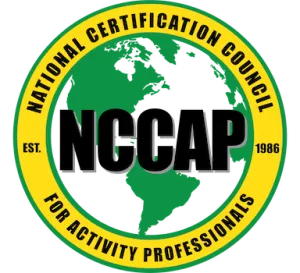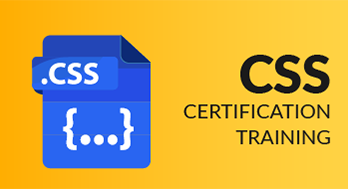In today’s highly competitive job market, professionals are constantly seeking ways to stand out and advance their careers. One effective way to achieve this is by obtaining professional certifications. These credentials serve as formal recognition of an individual’s expertise and skills in a specific field, and they can be a game-changer in terms of job opportunities and earning potential. In this article, we will explore the importance of professional certifications, the benefits they offer, and the various activities and industries where these certifications play a significant role.
The Significance of Professional Certifications
Professional certifications are not just pieces of paper; they are proof of an individual’s dedication to their field and their commitment to continuous learning and improvement. They are typically awarded by professional organizations, industry associations, or accredited institutions and serve as a seal of approval that confirms an individual’s expertise and competence. Here are some key reasons why professional certifications are significant:
- Enhanced Credibility: Professional certifications lend credibility to your qualifications. They are a recognized standard that employers, clients, and colleagues can trust, as they are often developed and maintained by respected organizations in the industry.
- Competitive Advantage: In many industries, professionals with certifications are more likely to be selected for job positions or promotions. They give you a competitive edge over others who lack these credentials.
- Skill Validation: Certifications validate your skills and knowledge. They demonstrate that you have achieved a certain level of expertise in your field and can be trusted to perform at a high standard.
- Career Advancement: Many employers view certifications as a commitment to ongoing professional development. Having relevant certifications can lead to faster career progression and increased earning potential.
- Industry Recognition: Certifications are often recognized and respected within an industry, making it easier to network and connect with like-minded professionals.
Benefits of Professional Certifications
Obtaining a professional certification can bring a host of benefits to your career, irrespective of the field you’re in. Here are some of the key advantages:
- Increased Earning Potential: Certified professionals often command higher salaries than their non-certified counterparts. Employers are willing to pay more for individuals who have demonstrated their expertise through certification.
- Career Opportunities: Certifications can open doors to new career opportunities, whether that means getting hired, advancing within your current organization, or branching out into a different area of your industry.
- Personal Growth: Preparing for and obtaining a certification can be a challenging journey that pushes you to learn, grow, and expand your skill set. It’s not just about the certification itself; it’s also about the knowledge and experience gained along the way.
- Networking: The process of obtaining a certification often involves connecting with others in your field. This can lead to valuable professional connections and the sharing of insights and best practices.
- Job Security: In a constantly evolving job market, having relevant certifications can provide job security. It demonstrates your adaptability and commitment to staying current in your field.
Activities and Industries that Benefit from Professional Certifications
Professional certifications are applicable across a wide range of activities and industries. Let’s delve into a few sectors where certifications play a significant role:
Information Technology (IT) Certifications
- CompTIA A+: This certification is a foundational credential for IT professionals. It covers essential IT skills, including hardware, software, troubleshooting, and networking.
- Cisco Certified Network Associate (CCNA): For those interested in networking, CCNA is a valuable certification. It validates your knowledge of networking fundamentals and Cisco products.
- Certified Information Systems Security Professional (CISSP): CISSP is a gold standard for information security professionals. It covers cybersecurity, risk management, and access control.
- Microsoft Certified Azure Administrator: As cloud computing becomes increasingly important, this certification validates your expertise in managing Azure resources.
Healthcare Certifications
- Registered Nurse (RN): RNs play a crucial role in healthcare. To become an RN, you must pass the NCLEX-RN exam.
- Certified Medical Assistant (CMA): CMAs are essential members of healthcare teams. Certification can be obtained through the American Association of Medical Assistants.
- Certified Professional in Healthcare Information and Management Systems (CPHIMS): This certification is for professionals in healthcare IT and management.
- Certified Nursing Assistant (CNA): CNAs provide basic care to patients and are often required to complete state-approved training programs.
Project Management Certifications
- Project Management Professional (PMP): Offered by the Project Management Institute, the PMP certification is highly respected in the field of project management.
- Certified ScrumMaster (CSM): Scrum is an agile framework used in project management, and the CSM certification validates your knowledge of Scrum practices.
- PRINCE2 (Projects IN Controlled Environments): PRINCE2 is a popular project management methodology, and certification is globally recognized.
- Certified Associate in Project Management (CAPM): CAPM is a valuable entry-level certification for those looking to start a career in project management.
Financial and Accounting Certifications
- Certified Public Accountant (CPA): CPA is a prestigious certification for accountants. It’s a must for those looking to work in auditing, tax, or consulting.
- Chartered Financial Analyst (CFA): CFAs are experts in investment management. The CFA certification is globally recognized and sought after by investment professionals.
- Certified Management Accountant (CMA): CMAs specialize in management accounting. This certification is offered by the Institute of Management Accountants.
- Certified Internal Auditor (CIA): CIAs are experts in internal audit. This certification is offered by The Institute of Internal Auditors.
Education and Teaching Certifications
- Teaching Certification: In the field of education, teachers often need state-specific certifications to work in public schools. Requirements vary by state.
- TESOL (Teaching English to Speakers of Other Languages): TESOL certification is essential for those who wish to teach English as a second language.
- Certified Educational Planner (CEP): Educational planners and counselors can obtain CEP certification to demonstrate their expertise in educational planning.
- Certified Online Instructor (COI): As online education grows, COI certification can be a valuable asset for educators in virtual environments.
Legal and Compliance Certifications
- Certified Paralegal (CP): Paralegals assist attorneys with legal work and can become certified through organizations like the National Association of Legal Assistants.
- Certified Compliance and Ethics Professional (CCEP): Compliance professionals ensure organizations adhere to legal and ethical standards. CCEP certification is offered by the Society of Corporate Compliance and Ethics.
- Certified Information Privacy Professional (CIPP): Data privacy is a critical concern today, and CIPP certification is available for professionals specializing in privacy regulations.
- Certified Fraud Examiner (CFE): CFEs investigate fraud and financial crimes. Certification is offered by the Association of Certified Fraud Examiners.
Also Read: Professional Nanny Certification
Human Resources Certifications
- Professional in Human Resources (PHR): PHR certification is for HR professionals who want to demonstrate their expertise in the field.
- Senior Professional in Human Resources (SPHR): SPHR certification is for more experienced HR professionals looking to advance their careers.
- Global Professional in Human Resources (GPHR): GPHR is a globally recognized certification for HR professionals working in international contexts.
- SHRM Certified Professional (SHRM-CP): The Society for Human Resource Management offers the SHRM-CP certification for HR professionals.
Real Estate Certifications
- Real Estate License: To work as a real estate agent, you’ll need to obtain a real estate license, which typically involves completing a specific number of real estate courses and passing an exam.
- Certified Commercial Investment Member (CCIM): CCIM certification is for commercial real estate professionals, signifying expertise in the commercial sector.
- Certified Residential Specialist (CRS): CRS certification is for residential real estate agents and demonstrates excellence in residential transactions.
- Certified Property Manager (CPM): CPMs are experts in property management and are recognized by the Institute of Real Estate Management.
Marketing and Digital Marketing Certifications
- Digital Marketing Certification: The digital marketing field is continuously evolving, and certifications in areas like Google Ads, Google Analytics, and HubSpot can demonstrate expertise.
- Certified Marketing Professional (CMP): The CMP certification is offered by the American Marketing Association and demonstrates advanced marketing skills.
- Content Marketing Institute Certification: This certification focuses on content marketing and is provided by the Content Marketing Institute.
- Social Media Marketing Certification: Social media experts can obtain certifications in platforms like Facebook, Twitter, and LinkedIn.
Choosing the Right Certification
Selecting the right certification is a crucial decision. It should align with your career goals, interests, and the industry in which you work. Here are some factors to consider when choosing a certification:
- Relevance: The certification should be relevant to your field and career aspirations. It should provide knowledge and skills that are in demand.
- Accreditation: Ensure that the certifying body is reputable and accredited. Look for certifications from well-known organizations in your industry.
- Cost and Time Commitment: Certifications can vary in cost and the time required to prepare and pass the exam. Consider your budget and availability.
- Career Goals: Your certification choice should align with your long-term career goals. Some certifications are stepping stones to more advanced credentials.
- Market Demand: Research the job market to determine which certifications are in demand. Speak with industry professionals to get insights.
- Maintenance Requirements: Some certifications require ongoing education or recertification. Understand the maintenance requirements before committing.
Preparing for Certification Exams
Once you’ve chosen a certification, it’s time to prepare for the exam. Here are some general tips to help you succeed:
- Study Materials: Utilize official study materials provided by the certifying body. This can include textbooks, online courses, practice exams, and study guides.
- Online Resources: Take advantage of online forums, study groups, and resources such as YouTube tutorials and blogs to supplement your study materials.
- Practice Exams: Practice exams are invaluable for getting a feel for the exam format and identifying your strengths and weaknesses.
- Time Management: Create a study schedule that allows you to cover all the necessary topics and provides time for review.
- Interactive Learning: Engage in interactive learning experiences, such as group study sessions or using flashcards, to reinforce your knowledge.
- Mentoring: If possible, seek a mentor or coach who has already earned the certification. Their guidance can be extremely helpful.
The Certification Exam
Taking the certification exam can be a nerve-wracking experience, but with the right approach, you can increase your chances of success. Here are some exam-day tips:
- Arrive Early: Ensure you arrive at the exam location well in advance to avoid any last-minute stress.
- Read Instructions: Carefully read the exam instructions before starting. Understand the format and any specific rules.
- Time Management: Manage your time effectively during the exam. If a question is particularly challenging, move on and return to it later.
- Stay Calm: It’s normal to feel anxious, but try to stay calm and focused. Take deep breaths and maintain a positive mindset.
- Review Your Answers: If time allows, review your answers before submitting the exam. Check for any errors or overlooked questions.
- Take Breaks: If the exam is long, use the provided breaks to relax, have a snack, and recharge.
Maintaining and Renewing Certifications
Many certifications require ongoing maintenance to ensure that professionals remain current in their knowledge and skills. Here are some common methods for maintaining and renewing certifications:
- Continuing Education: This may involve attending workshops, webinars, or courses to earn continuing education credits.
- Recertification Exams: Some certifications require professionals to retake the certification exam periodically to demonstrate ongoing expertise.
- Professional Development: Engage in professional development activities such as conferences, seminars, and networking events.
- Publication and Presentation: Writing articles, giving presentations, or contributing to your industry can also count towards maintenance.
- Pay Annual Dues: Some certifications require professionals to pay annual dues to maintain their status.
Conclusion
Professional certifications are a powerful tool for career advancement and professional growth. They provide validation of your skills, enhance your credibility, and open doors to new opportunities. Whether you are in the IT field, healthcare, project management, finance, education, or any other industry, there are certifications that can help you excel in your career. The process of earning a certification is a rewarding journey that not only proves your expertise but also expands your knowledge and skills. In a rapidly changing job market, staying ahead with relevant certifications is an investment in your future success.
Remember that choosing the right certification is key, and diligent preparation is essential. Once you’ve earned your certification, maintaining it will ensure that you continue to reap the benefits throughout your career. So, explore the certifications available in your field, set your goals, and embark on a journey of professional growth and success. Your commitment to learning and excellence can truly make a difference in your career and open up a world of opportunities.




